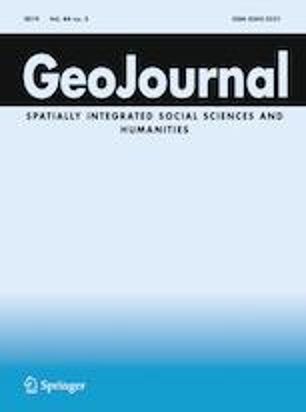Šimon, Martin, Vašát, Petr, Daňková, Hana, Gibas, Petr, Poláková, Markéta. 2020. „Mobilities and commons unseen: spatial mobility in homeless people explored through the analysis of GPS tracking data“. GeoJournal. 85 (5): 1411–1427.. ISSN 0343-2521. [cit. 11.09.2024]Available from: https://link.springer.com/article/10.1007/s10708-019-10030-4
The aim of this study was to examine the spatial mobility of homeless people in urban areas, exploring homeless mobility, its drivers, limits and links to personal attributes, and whether there is an association between the extent of spatial activity and an individual’s housing situation. To our knowledge, there has been no prior exhaustive attempt to explore the spatial mobility of homeless people using Global Positioning System (GPS) location devices. The theoretical background of the research was based on time-geography approaches. The research used a mixed method approach involving participatory GPS mapping. Spatial mobility was measured by GPS location devices. GPS tracking made it possible to capture the precise location of a person in time and space, and subsequently to identify the daily and weekly mobility rhythms of such people. The GPS data were further contextualised by conducting interviews with homeless people and asking about their daily mobility. The groundwork for the interviews resulted in printed maps of the participants’ daily spatial mobility (n = 598). The combination of timelocation data and ethnographic methods presented several technical and organisational difficulties, but the pilot study provided valuable knowledge about the everyday-life mobility of homeless people in cities. A novel understanding of the links between homeless mobilities, urban commons and the life conditions of homeless people can inform current welfare policies relating to the poor.
Authors
- RNDr. Martin Šimon, Ph.D.
- Mgr. Petr Vašát, Ph.D.
- Mgr. Hana Daňková
- Petr Gibas, Ph.D.
Topics
Housing, City and Village, Research Methodology, Migration and Mobility, Social Inequalities






